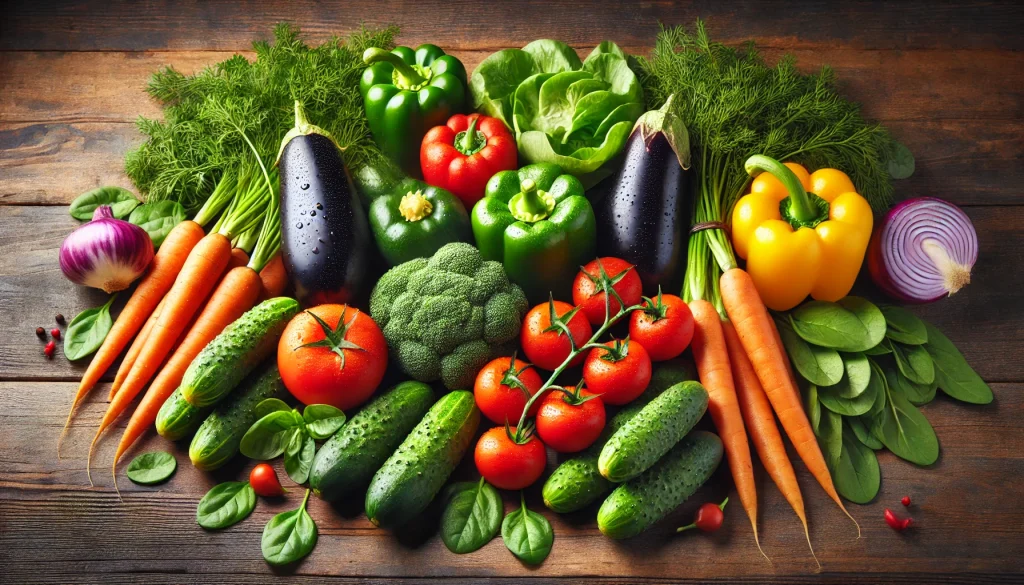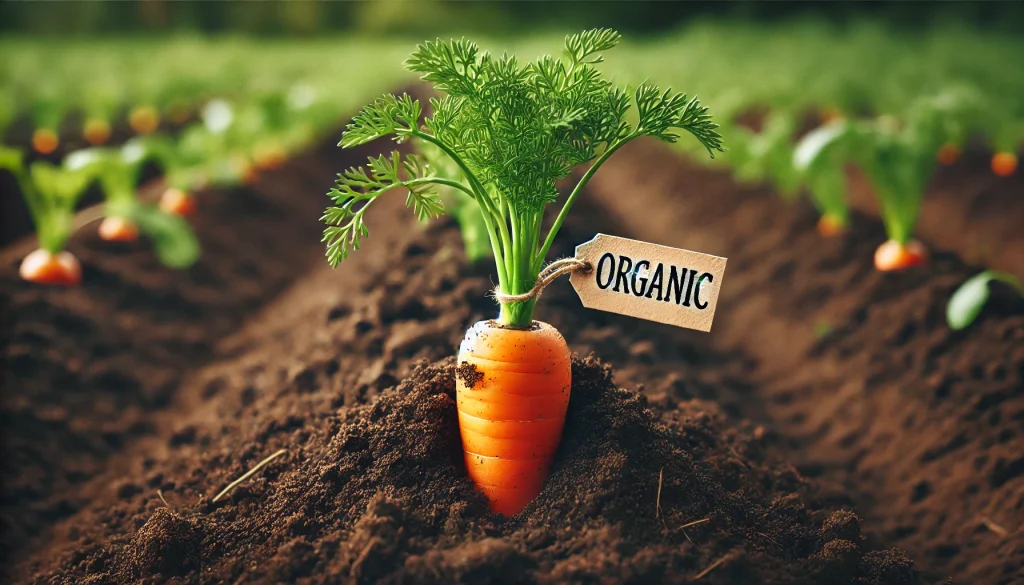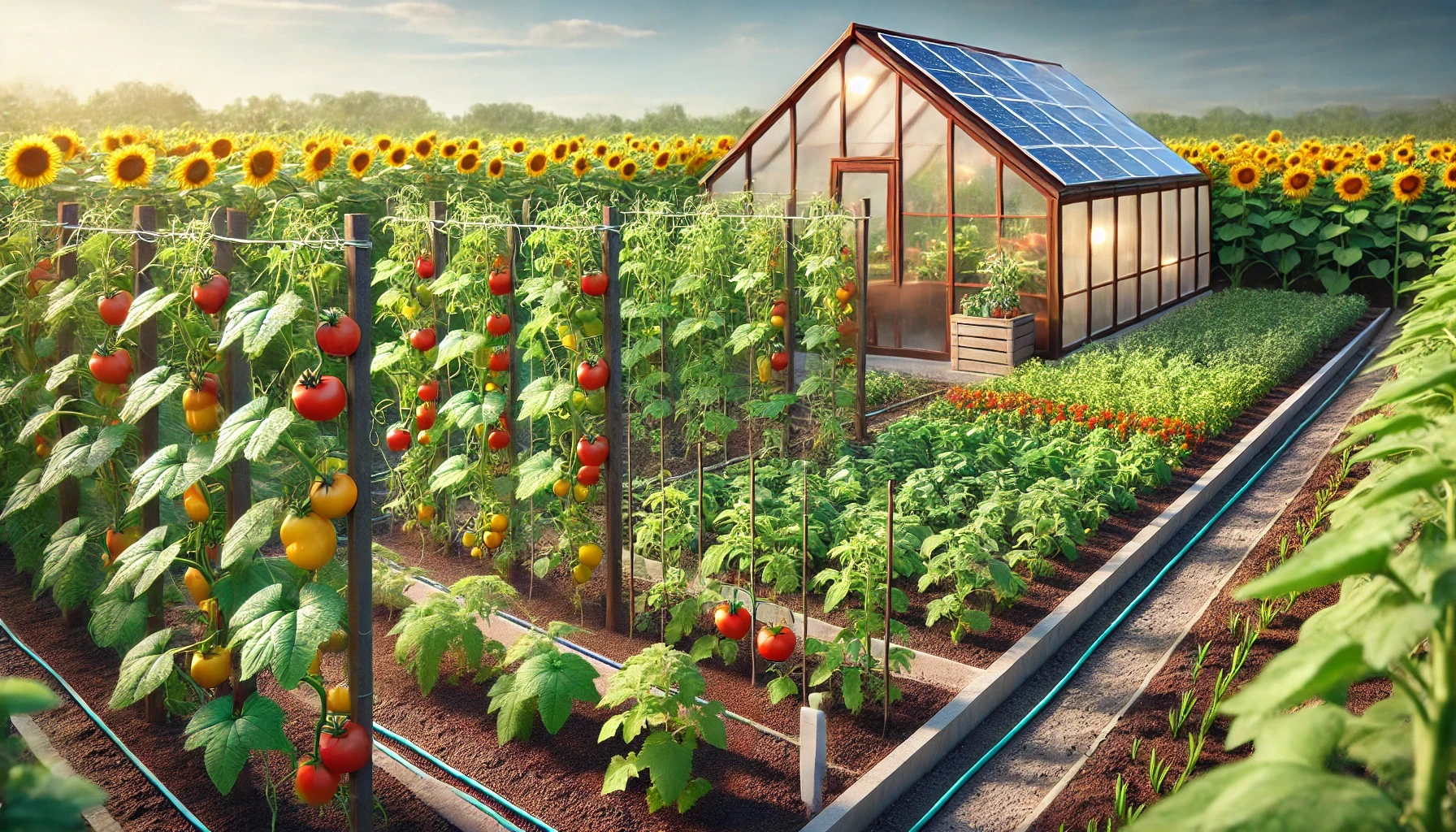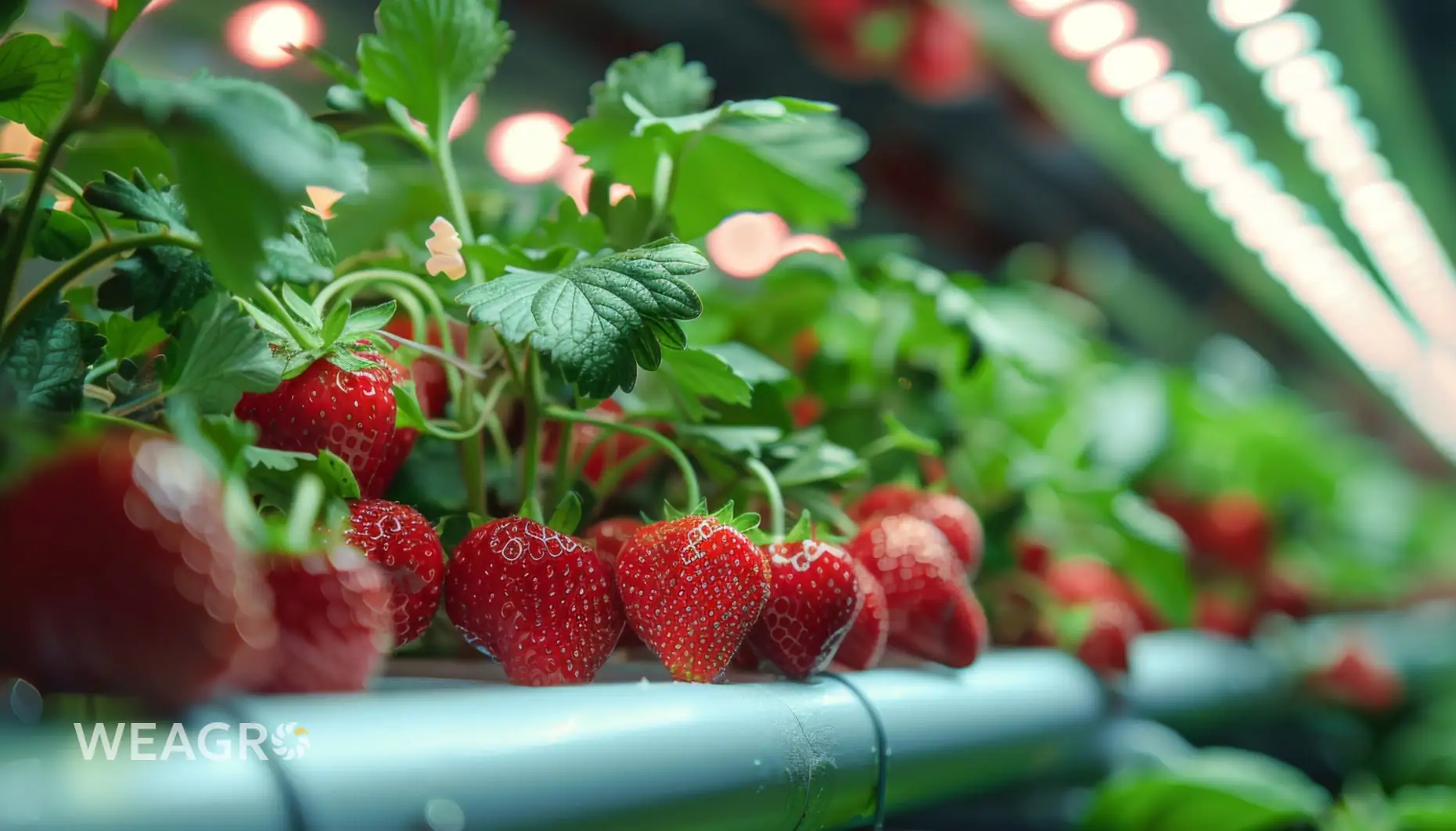Organic production is a certified activity related to growing agricultural products and animals in compliance with strict legal requirements, circulation, and labeling. Ukraine has significant potential for development in this area due to fertile soil, favorable climate, large areas of agricultural land, and long-standing agricultural traditions. In this article, we will tell you everything you need to know about the organic direction and give recommendations to businesses on how to master this promising industry.
What are Organic Production and Organic Products
Organic production is a holistic agricultural management system that considers and optimizes all aspects of plant and animal cultivation to obtain stable yields with minimal negative impact on the environment. It is based on the following main principles:
- Rejection of synthetic fertilizers and plant protection products. Instead, compost, green manures, manure, and biological methods of pest and disease control are used.
- Minimal soil tillage, use of crop rotations to preserve its natural fertility and prevent erosion. Methods of mulching, green manuring, and mechanical weeding are actively used.
- Organic production in animal husbandry – ensuring not just proper housing conditions, but as close to natural as possible, feeding with full-fledged organic feed, disease prevention instead of antibiotic treatment.
- Clear separation in time and space of production and storage processes for different types of products to avoid mixing and contamination.
- Categorical prohibition of the use of GMOs and the results of their processing.
- Support of biodiversity, planting of protective forest belts, preservation of natural ecosystems on the farm territory.
In addition, organic products are the result of crop production, animal husbandry, and food industry that has received the appropriate certificate. According to Ukrainian legislation, it contains at least 95% of ingredients of agricultural origin obtained through certified production. At the same time, it should not contain synthetic flavors, colors, and preservatives.
The main advantages of organic products are their environmental safety and higher quality and taste properties compared to traditional agricultural products. Such vegetables and fruits contain more vitamins, minerals, and antioxidants, meat and milk – complete protein, cereals and legumes retain their natural taste and aroma.
Read also: Organic fertilizers: what they are, types and application rates
Transition to Organic Production in Ukraine

The organic movement in Ukraine originated in the late 1990s when the first enthusiasts began to implement ecological farming methods and look for markets. However, for a long time, this sector developed spontaneously, without proper legislative framework and state regulation.
An important milestone was the adoption in 2013 of the Law of Ukraine “On the Production and Circulation of Organic Agricultural Products and Raw Materials,” which laid the legal foundations for the functioning of this market. However, this law proved to be imperfect, insufficiently harmonized with European norms.
A real breakthrough occurred in 2018 when the new Law of Ukraine No. 2496-VIII “On Basic Principles and Requirements for Organic Production, Circulation and Labeling of Organic Products” was adopted. This document establishes clear and understandable rules of the game in this market, adapted to EU standards. In particular, the law defines:
- basic terms and concepts in this field;
- requirements for growing plants and animals, production of food products and feed;
- labeling rules, including the introduction of a single national logo;
- procedures for certification, inspection, and supervision of operators’ activities;
- measures of state support and stimulation of the sector.
To implement the provisions of the law, the government approved a number of bylaws, including:
- detailed rules for organic production and circulation of organic products (CMU Resolution No. 970 dated 23.10.2019);
- procedure for certification of organic production (CMU Resolution No. 1032 dated 21.10.2020);
- procedure for maintaining a register of operators, certification bodies, and organic planting material (CMU Resolution No. 87 dated 12.02.2020);
- requirements for substances allowed to be used in the process of organic production (Order of the Ministry of Economy No. 1073 dated 09.06.2020).
The adoption of special organic legislation created the necessary regulatory framework for the sustainable development of this sector and the formation of a civilized market in Ukraine. This industry has become more attractive and understandable for investors, farmers, and consumers.
The state, recognizing the value of organic agriculture for environmental protection, national health, and rural development, implements support measures for certified producers. In particular, compensation of up to 30% of the costs of obtaining necessary documents, purchasing permitted plant protection products, fertilizers, seeds, and feed is provided. Organic farming is classified as a priority area with access to budget subsidies and preferential lending.
The online service WEAGRO actively supports organic production in Ukraine, providing the opportunity to purchase necessary goods and services with deferred payment directly on the service. This significantly simplifies supply and helps to effectively develop business even in conditions of limited working capital.
Labeling of Organic Products
To identify organic products, a single state logo for labeling organic products has been introduced in Ukraine since 2019. It is a combination of the inscription “ORGANIC PRODUCT” and a graphic image – two intersecting circles forming a leaf. The use of the logo is mandatory for certified products and guarantees their compliance with legal requirements.

Certificate
To obtain an organic certificate, the producer must submit an application to the relevant body and pass a compliance check. The inspector examines all stages of product manufacturing: seeds, fertilizers, protection means, storage conditions. If the inspection is successful, a certificate is issued for a period of 15 months. The cost of the procedure is calculated individually. Ukrainian farmers can be certified according to international standards for export.
The online service WEAGRO supports agricultural producers by providing the opportunity to purchase necessary goods and services with deferred payment directly on the service. This helps to effectively develop organic production in Ukraine and transition to the organic sector.
Organic Products in Ukraine
In Ukraine, various crops are grown organically:
- cereals (wheat, barley, corn, millet);
- legumes (peas, soybeans, chickpeas, lentils);
- oilseeds (sunflower, rapeseed, flax, pumpkin);
- berries (strawberries, raspberries, blueberries, blackberries);
- fruits (apples, pears, plums);
- vegetables (tomatoes, peppers, cucumbers, carrots, cabbage);
- nuts (walnuts, hazelnuts);
- grapes;
- medicinal plants.
Dairy and meat products, eggs, and honey are also produced. However, the range of organic products in Ukraine is still not wide enough. The main part is exported.
Export of Organic Products
Ukraine holds leading positions in Europe in organic agriculture. According to the results of 2023, the country ranked 5th among 125 countries in terms of exported organic products to the EU. Local farmers have remained in the top five suppliers to the European Union for the sixth consecutive year, and the statistics on organic product supply confirm this. Despite the difficult conditions caused by military aggression, the Ukrainian organic sector continues to develop and strengthen its position in the world.
In 2023, there was a complete implementation of Ukraine’s organic legislation, and two state registers in the field of production, circulation, and labeling of goods began to operate. In May 2023, the National Accreditation Agency of Ukraine issued the first certificate to the certification body LLC “Organic Standard,” and in June, the Ministry of Agrarian Policy included this company in the State Register.
The total area of land with organic status in Ukraine continues to grow. The range of products is wide and includes cereals, legumes, oilseeds, vegetables, fruits, berries, as well as animal products.
The volume of exports of such products from Ukraine in 2023 decreased by 20.7% compared to 2022. However, this decrease occurs against the background of a general reduction in imports of organic agri-food products to the EU by 9.1% over the same period. The main markets remain EU countries, as well as the USA, Canada, and Switzerland.
However, Ukraine’s organic sector shows resilience and potential for further growth. It is expected that from 2025, all EU exporting operators will be certified according to new standards, which may open new opportunities for Ukrainian organic producers.
In 2023, the country was represented by 23 companies at the largest National stand of the international exhibition BIOFACH 2023, demonstrating the growing interest of the world market in Ukrainian organic products.
Read also: Farm Enterprise: What It Is, Types, How to Name and Register
Domestic Market of Organic Products
Although the Ukrainian organic sector showed positive export dynamics, increasing it by almost 15% to EU countries and Switzerland. However, the domestic market contracted: 6,280 tons of products were sold for a total of 627 million UAH, which is less compared to previous years. For example, in neighboring Poland, the sector of similar products is significantly larger, and in Germany, it is estimated at billions of dollars. On the other hand, Ukrainian suppliers to the local market show potential for recovery and growth, especially in 2023, when there was a revival in demand. The main distribution channels for organic products in Ukraine remain supermarket chains and online stores.
Factors that continue to constrain organic production in Ukraine include:
- low purchasing power of the population and willingness to pay more for eco-products;
- insufficient consumer awareness about organic products, inability to distinguish them from conventional products;
- high share of imported goods, especially processed ones;
- limited range of domestic offerings and their irregular availability in stores;
- weak development of infrastructure and logistics, leading to price increases.
However, greater interest in safe food products in Ukraine is steadily growing. Organic producers are increasingly interested in the domestic market, investing in processing, packaging, branding of products, and exploring new sales channels. A culture of responsible consumption is gradually forming, especially among the younger generation and people with high incomes.
How a Farmer Can Transition to Organic Production
Transitioning to organic production in Ukraine requires a comprehensive approach but opens new perspectives and opportunities for development. Certified products are of interest to both domestic and international markets, allowing for increased profits and improved competitiveness.
Requirements for Organic Production
Ukrainian legislation establishes clear requirements for production:
- use of only permitted plant protection products and fertilizers;
- prohibition of GMOs, synthetic substances, and growth hormones;
- clear separation of organic and non-organic production;
- maintaining documentation that allows tracing the origin of products;
- preservation of natural resources, soil fertility, biodiversity;
- keeping animals in conditions close to natural;
- feeding animals with organic feed.
The transition from traditional agriculture is a serious step that requires appropriate knowledge, resources, and perseverance. But in the long term, such efforts pay off in the form of better soil fertility, product quality, human health, and the environment. Organic production is positioned as more sustainable and efficient in terms of rational use of natural resources.
Algorithm for Transitioning to Organic Production
For a farmer planning to transition to organic production, the following general recommendations can be given:
- Choose a certification body and conclude a contract.
- Prepare production for inspection, eliminate non-conformities.
- Undergo inspection by the certification body.
- Obtain a certificate and the right to label products.
- Implement production and document flow procedures according to requirements.
- Undergo annual certification to confirm status.
For a successful transition, it is important to carefully study the standards, prepare personnel, and optimize production processes. A phased plan is recommended, which will minimize risks and costs.
Our online service WEAGRO helps organic production in Ukraine successfully develop its business. The online service allows purchasing necessary goods and services from reliable suppliers with deferred payment directly on the site. This enables effective management of working capital and reduces the financial burden on the farm.
Prospects for the Development of Organic Production in Ukraine
Organic agriculture is a priority direction for Ukraine. The demand for such products in the world market is constantly growing. Currently, Ukraine mostly exports raw materials, but processing is actively developing, which allows for the production of value-added goods.
Advantages of organic production for farmers:
- stable demand and premium price for products;
- increase in soil fertility and crop yields;
- care for the environment and consumer health;
- access to international markets.
For further development of the sector, state support, infrastructure creation, and consumer information are necessary. Programs are already in place that provide compensation for certification costs and the purchase of permitted protection products and fertilizers. There are also









